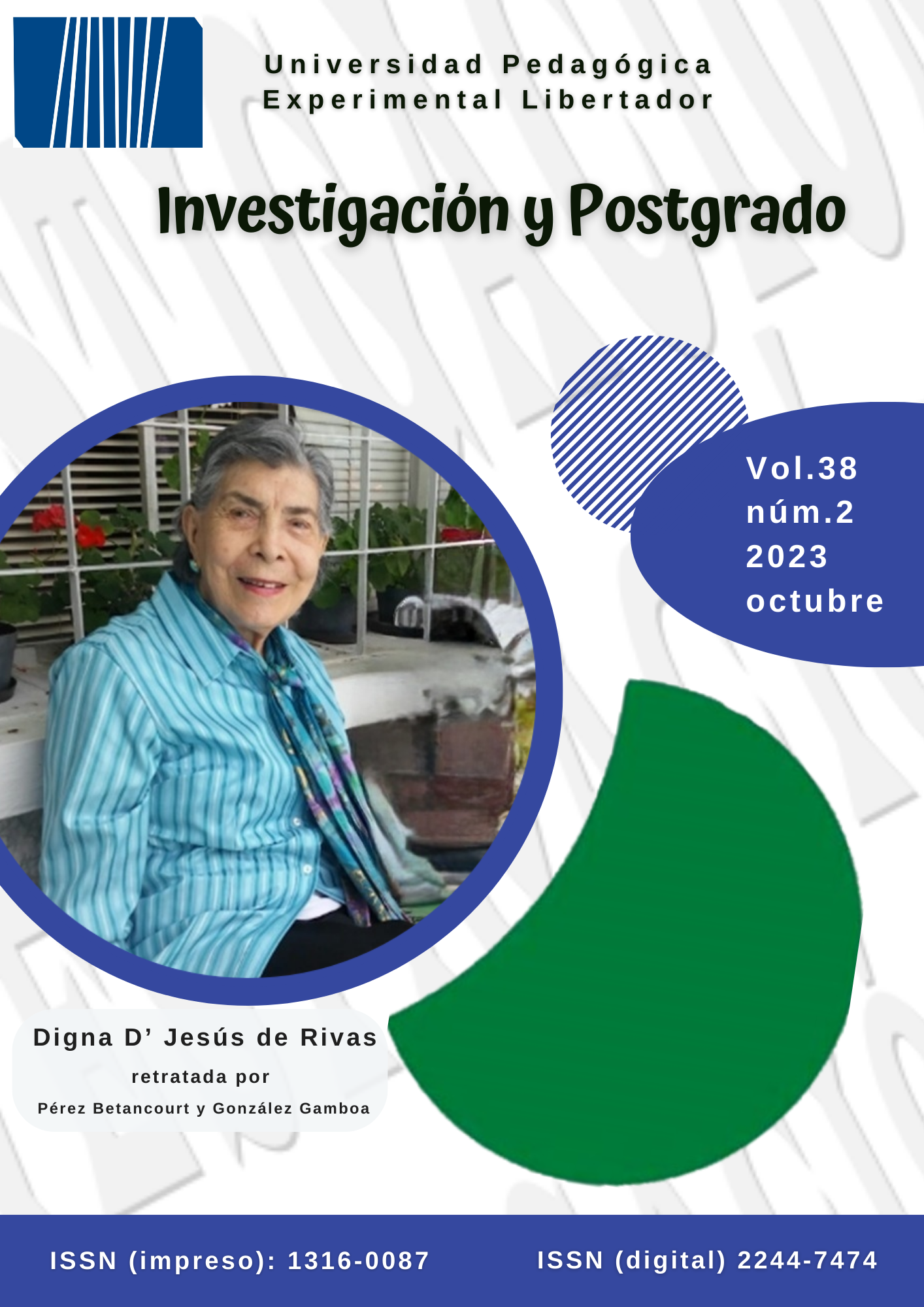TEACHING ETHICS IN THE TRANSFERABILITY OF MATHEMATICAL KNOWLEDGE
DOI:
https://doi.org/10.56219/investigacinypostgrado.v38i2.1992Keywords:
Ethics of the teacher, transferability of knowledge, mathematicsAbstract
In the current study, the objective is to establish the relationship between teaching ethics and the transferability of mathematical knowledge in a university in the province of Santiago, Independencia commune, Metropolitan region, 2022. The methodology used in a basic and non-experimental-correlational type of inquiry. The study unit established by 86 educators and the sample was intentional non-probabilistic, applying a questionnaire with Likert-items and validated through the technique of judges and experts. Among the results: it is evident that the teacher's ethics is directly significant to the transferability of mathematical knowledge, that is, teachers allow modeling reality and Mathematics acquires greater meaning as long as they are useful for this purpose.
Downloads
References
Álvarez Gómez, G. M., et al. (2020). Método para medir la formación de competencias pedagógicas. Neutrosophic Computing and Machine Learning Vol. 11, 42-48.
Avilés, H. (2019). Desarrollo de la personalidad eficaz a través del coaching escolar grupal en estudiantes de educación secundaria obligatoria, Madrid, para optar al grado de doctor por la Universidad Complutense de Madrid.
Auld, E. y Morris, P. (2019). Science by streetlight and the OECD’s measure of global competence: A new yardstick for internationalisation? Policy Futures in Education, 17(6), 677-698. https://doi.org/10.1177/002205741419400302
Bolivar, R. (2019). Investigar la práctica pedagógica en la formación inicial de maestros. Pedagogía y Saberes, 51, 9-22.
Camacho Monar, M. A., y Valdés Rodríguez, M. C. (15 de Sepiembre de 2020). Una perspectiva filosófica y sociológica de la competencia profesional ambiental en la educación superior. Revista Fuentes, 22(2), 251-260.
Cornejo, M.J. y Gómez-Jarabo, I. (2018). Desarrollo de la competencia global en la formación del maestro. El caso de la asignatura Practicum. Innovación educativa(28), 233-248. https://doi.org/10.15304/ie.28.5361
Giráldez Hayes, A., y Van Nieuwerburgh, C. (2016). Coaching Educativo. Madrid: Paraninfo.
Hernández, S., Fernández, C. y Baptista, P. (2016). Metodología de la investigación. (5ta. ed.). McGraw Hill ediciones.
Jiménez (2012). Coaching en el desarrollo profesional docente. Fases formativas y procesos metodológicos de investigación, publicado por la Revista Electrónica Interuniversitaria de Formación del Profesorado, 15 (4), pp. 101–112, de la Facultad de Educación de la Universidad de Murcia, España.
Rivadeneira Rodriguez, E. (2017). Competencias Didácticas-Pedagógicas Del Docente, En La Transformación Del Estudiante Universitario. Orbis. Revista Científica Ciencias Humanas, 13(37), 41-55.
Rodríguez, M. (2011). La ética en la praxis de la triada: matemática-cotidianidad y pedagogía integral. Revista Educación y Desarrollo social, 5 (1). 175-184.
Published
How to Cite
Issue
Section
License
Copyright (c) 2023 INVESTIGACIÓN Y POSTGRADO

This work is licensed under a Creative Commons Attribution-NonCommercial-ShareAlike 4.0 International License.
Investigación y Postgrado está bajo una licencia internacional Creative Commons Attribution-NonCommercial-ShareAlike 4.0 .
La política de acceso abierto y de licencias con “algunos derechos reservados” no niega la propiedad intelectual ni los derechos de los autores respecto a sus artículos, al contrario, los respeta. Es por ello que:
No se reservan los derechos de publicación de los artículos. Los autores podrán distribuir su artículo en cualquier otro medio, siempre y cuando sea sin fines de lucro. Debe informar al Editor de esta nueva publicación y debe dar el crédito a la revista Investigación y Postgrado.













